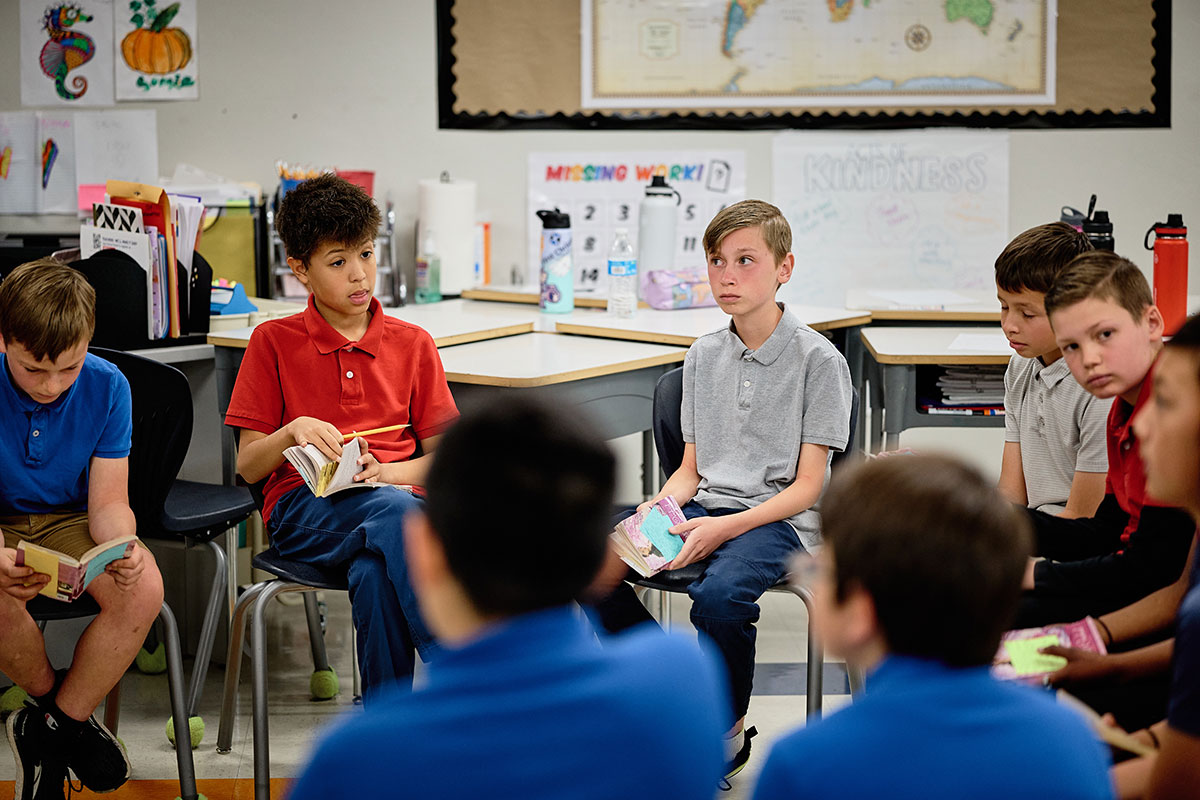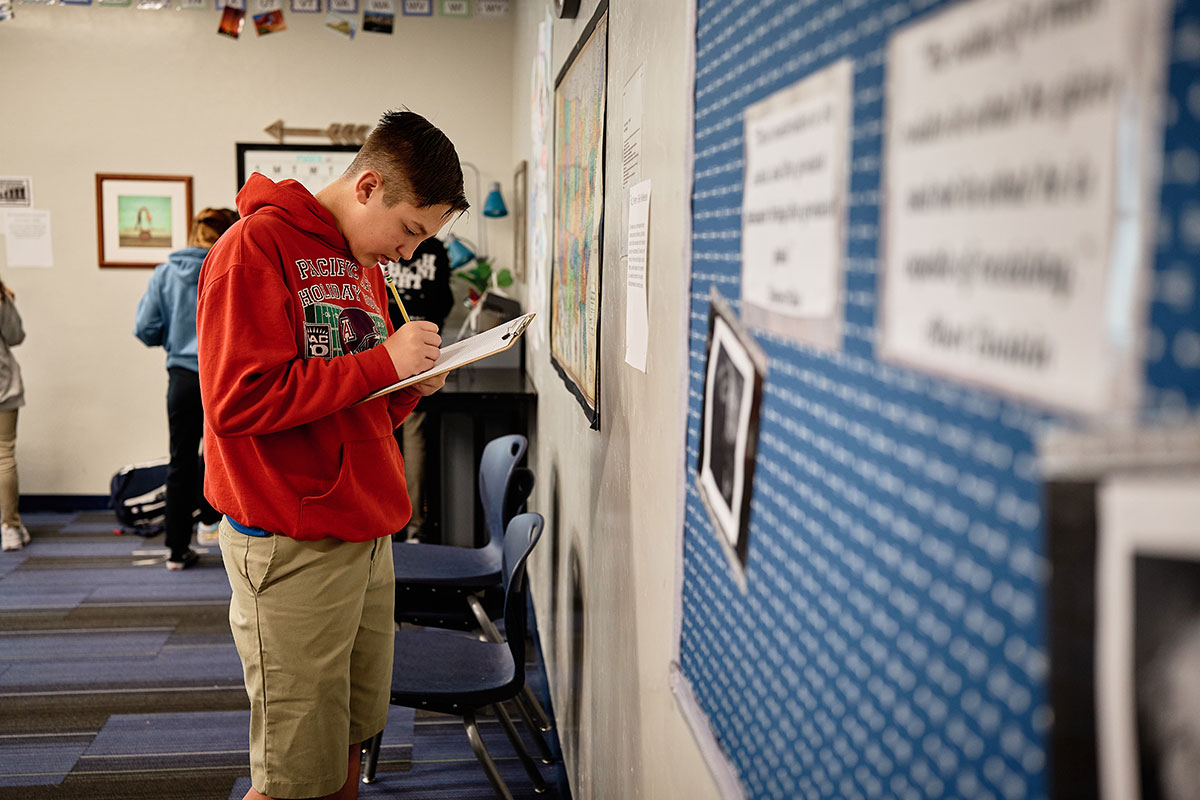About
Classical Education
What Is Classical Education?
Classical Education equips children for the future with what has been proven successful in the past. The roots of classical learning can be traced back to the age of the Ancient Greeks and Romans. The classical emphasis is built on a three-fold approach called the Trivium. The three foundational academic categories are grammar, logic and rhetoric. Most importantly, the Trivium corresponds to the three basic stages of a developing child. By following the path of development that children naturally take, Classical Education teaches “with the grain” and equips scholars to master the art of learning.
Classical education provides a generous feast of great ideas found in rich literature and embraces the virtues within the richness of our curriculum. To quote Milton, “Language is but the instrument conveying us to things useful to be known.” This is done by allowing history to be the foundation of study with living books (rich, timeless, and enduring literature) which complements the relationships that all knowledge is interrelated. With history acting as the hub of the wheel, the spokes connecting to the core include science, literature, math, fine arts, Latin and Logic which unfolds a timeless story for all scholars to embrace and engage with. As Charlotte Mason says, “education is the science of relations.”
Classical education prepares scholars to think deeply, to love what is lovely, to embrace the beauty found in the core content areas, to pursue knowledge, and to wrestle with the truth from past generations. As we do this, we look ahead with great expectation to produce tomorrow’s leaders today who are lifelong learners and positive contributors to the next generation.
The Three Stages of Classical Education

The Grammar Stage
These are the years in which the building blocks for all other learning are laid, with scholars learning the basic skills of reading, writing and mathematics. The child in the “Grammar Stage” (grades K-5) is mentally ready to absorb information and is naturally good at memorization, and this stage takes full advantage of this fact (although appropriate attention is given to meaning and comprehension, even at this first stage). This forms the foundation from which all other subjects can be approached, and there are many ways to get the job of memorization done including: songs, living books, chants, poems, movement, repetition, discovery and exploration.
The most emphasized learning activity at this stage is memorization, both for purposes of cognitive recall and for building storage identities for future knowledge acquisition. During this stage, education involves not self-expression and self-discovery, but rather the learning of facts. Rules of phonics and spelling, rules of grammar, poems, the vocabulary of foreign languages, the stories of history and literature, descriptions of plants and animals and the human body, the facts of mathematics — the list goes on. Grammar teaches scholars how to read and how to understand what they are reading, and it teaches the rules for writing intelligibly, according to the rules of a particular language. This information makes up the basic building blocks in preparation for the second stage of education.
Primary Faculties (skills): Observation and memory.
Key Exercise: Latin Grammar.
Pedagogy: Reciting, chanting, learning by heart.
End Result: Scholar becomes knowledgeable.

The Logic Stage
By 6th grade, a child’s mind begins to think more analytically, and the scholar starts to study formal logic and argumentation. Middle-school scholars (grades 6-8) are less interested in finding out facts than in asking “Why?” The second phase of Classical Education, the “Logic Stage,” sees the young person as able to learn to argue his or her point, thus taking information, organizing it, and applying it in increasingly sophisticated forms.
A scholar is ready for the logic stage when the capacity for abstract thought begins to mature. During the middle school years, the scholar begins the study of algebra as well as logic, and begins to apply logic to other academic subjects. The logic of writing, for example, includes paragraph construction and learning to support a thesis; the logic of reading involves the criticism and analysis of texts, not simple absorption of information; the logic of history demands that the scholar find out why the War of 1812 was fought, rather than simply reading its story; the logic of science requires that the scholar learn the scientific method.
Primary Faculty: Discursive reason.
Key Exercise: Logic.
Pedagogy: Focused upon the beauty of economy of fine demonstrations of dialectic as well as analytical criticism of less exemplary forms. Use of “subjects” as “grist for the mental mill” to work upon.
End Result: Scholar becomes a thinker.

The Rhetoric Stage
The final phase of a Classical Education, the “Rhetoric Stage,” builds on the first two. At this point, the high school scholar learns to write and speak with force and originality. The scholar of rhetoric applies the rules of logic learned in middle school to the foundational information learned in the early grades and expresses his conclusions in clear, forceful, elegant language. The maturing scholar in the rhetoric stage has achieved the ability to communicate, synthesize and generalize learning across a range of disciplines.
Primary Faculty: Synthesis.
Key Exercise: Expression.
Pedagogy: Freedom to pursue own interests.
End Result: Scholar becomes articulate.